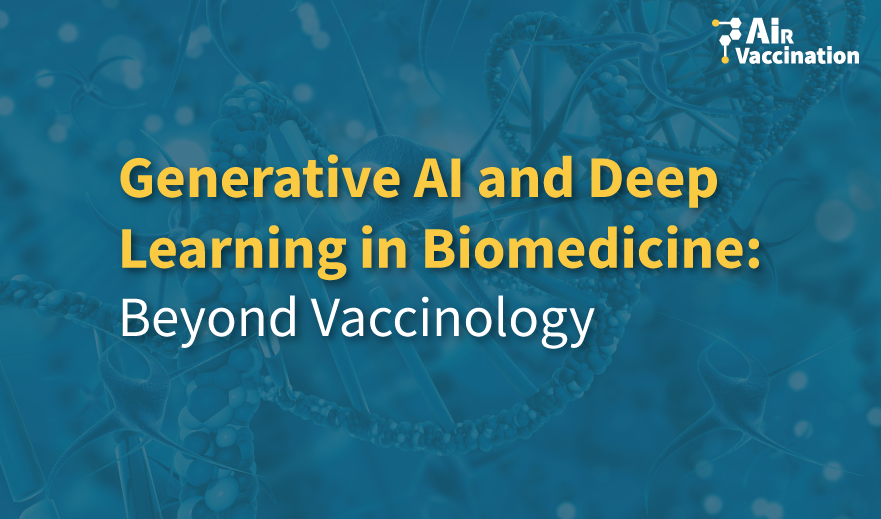Generative AI and Deep Learning in Biomedicine: Beyond Vaccinology
Artificial Intelligence is opening new frontiers in healthcare, and two of its most powerful branches — Generative AI and Deep Learning — are driving some of the most groundbreaking advances. While their role in accelerating vaccine design is increasingly recognized, their potential goes far beyond vaccinology.
These technologies are reshaping how we understand biology, predict diseases, and design treatments, marking the beginning of a new era in biomedicine.

Generative AI: creating new biomedical possibilities
Generative AI stands out because it does not just analyze data — it creates new solutions. In the biomedical field, this translates into:
- Drug discovery: generating new molecular structures with therapeutic potential.
- Protein design: proposing novel protein variants for use in therapies.
- Personalized medicine: creating tailored treatment strategies based on patient data.
This “creative” capacity helps researchers explore scenarios that traditional experimentation could never reach within the same timeframe.
Deep Learning: revealing patterns in complex data
Deep Learning, inspired by the way the human brain processes information, is particularly effective at identifying patterns in massive and complex datasets. In biomedicine, it is already being applied to:
- Medical imaging: detecting anomalies in X-rays, MRIs, or CT scans with high precision.
- Genomics: analyzing vast amounts of genetic data to identify disease markers.
- Epidemiology: predicting the spread of infectious diseases and informing public health decisions.
These applications demonstrate how AI can go from prevention to diagnosis and treatment, strengthening every step of the healthcare chain.
Synergy in research and innovation
When combined, Generative AI and Deep Learning create a powerful ecosystem: one technology generates new possibilities, while the other validates and refines them by analyzing large volumes of biomedical data.
This synergy is already accelerating research in areas such as:
- Cancer therapies.
- Rare disease treatment development.
- Neuroscience and brain mapping.
The AIR Institute’s vision
Through projects like Vaccination, the AIR Institute is showing how these technologies can transform the development of intelligent vaccines. But the impact does not stop there: the same tools can be extended to drug discovery, personalized treatments, and predictive health models, placing Castilla y León at the heart of global biomedical innovation.